Behind the Line:75th Nintendo Shareholder Meeting Q&A

Recently, Nintendo had the 75th Annual General Meeting of Shareholders, and the Q&A from this is available for everyone to read here:
http://www.nintendo.co.jp/ir/en/stock/meeting/150626qa/index.html
Two big points of discussion were the upcoming NX platform, and the expansion to the mobile market. I’ve spoken at length about this topic before, but every time I see more from Iwata I find it very interesting. There’s something about Nintendo that’s artistic, creative, savvy, respectful, and uncompromising.
Really, there’s a lot of good stuff to look through there, but here’s my take on some of what was discussed.
Wii U and 3DS
One of the first points that was drilled home was concerns about the fact that the Wii U can’t be considered successful at this point.
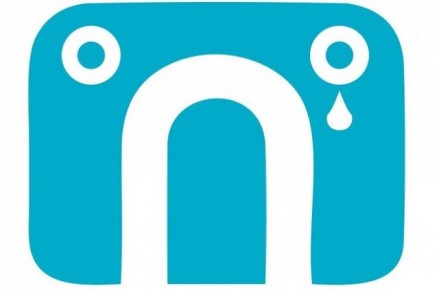
Iwata did not shy away from this fact, which is appropriate, but there was very little diplomatic veneer put on it either.
For Wii U in particular, it cannot be said that it had a successful launch. […] Wii U has not been able to recover at this point in time. Because of this, the size of the installed base compared to the Nintendo DS or Wii eras appears not to be as solid and this is reflected in the company’s profitability.
Now, at this point it’s difficult to defend the performance of the Wii U, so any attempt to try to put a happy face on it would ring blatantly false, but at the same time, Nintendo does not seem to be shying away from the fact, and answered these questions in significant detail. It always feels to me like they are very aware of having dropped the ball with the Wii U by either not being innovative enough in the design, or not having a killer app early on to display just what could be done with this. Consider, can you think of any games really use the Wii U to its full potential? There’s certainly nothing as iconic as Wii Sports and how it introduced people to the motion controller.
Though, I still wish someone would do this!
The 3DS was brought up as well, but concerns about that were much more subdued.
As for Nintendo 3DS, in Japan there was a temporary slowdown but we managed to make a recovery by offering a number of initiatives collectively.
With the troubles of the Wii U apparent, the next concern is if it will continue to be supported. Iwata expressed interest in continued support, with the apparent stance being to respect the customers who purchased the platform already.
As for Wii U, we will continue to make efforts, as it is a priority within the company to think about how we can satisfy the consumers who purchased this system to the maximum extent possible.
Many people complain about some companies treating the customers merely like revenue sources, but it seems to permeate Nintendo’s philosophy to respect their customers far more deeply than that.
Mobile/Free to play
Obviously the expansion of mobile/Free to Play was a significant topic. One of main points I took from this was the philosophy that Nintendo seems to be taking into this market. First is simply a terminology thing.
…we use the term “free-to-start,” as this term more aptly describes that at the beginning you can start to play for free.
Nintendo seem to be taking a different approach from the current usual accepted approach in the free to play market. Normally, the fact is that if the game is given away for free, then a small portion will pay, and a small portion of those will pay a lot. Instead, Nintendo seem to want to use the platform to generate a large user base to demonstrate the value of their software and inspire them to pay. It sounds like they want to do this by having a hard pay gate, which in turn re-enforces the “free-to-start” label. This might be something like playing Mario, and world 1 is free, but you have to spend $1 for each world after that.
Reading Iwata’s comments, though, I’m not entirely certain if he was referring to Nintendo’s intended format, or commenting on other existing formats. It sounds like there might not be a one size fits all approach with respect to game monetization, instead trying to make things work best for the individual game.
We believe we should not limit our payment system only to one-time payments, even though this is not something that we can announce as a general principle because different payment systems suit different kinds of software.
I hope that Nintendo will figure out something characteristically innovative to the free to play model. If it is in fact like the Mario example I gave, I have seen plenty of mobile games with “demo”, or “lite” versions, where payment is needed to unlock the rest of the game. This approach always struck me as blunt, and ineffective for the mobile marketplace, when there are other games that will behave similar, but not have hard pay gates like this. When that alternative is there, the customer will likely go to it.
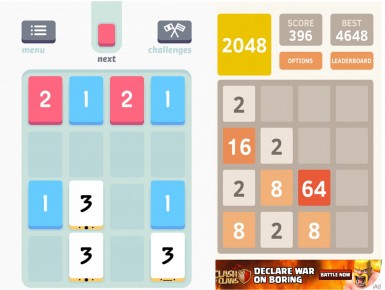
On the left, Threes, a well regarded mobile game. On the right, 2048, a game more than lightly inspired by Threes. Threes cost money, 2048 was free with ads. Guess which one got more users?
NX
Iwata promised that the next console will be something innovative. Investors seemingly routinely ask for details, but Nintendo is not interested in revealing their plans too soon to give competitors time to react or prepare.
If they have truly learned the lessons from the Wii U, then we can expect this platform to:
- Have a name that makes anyone know that it is in fact a different item.
- Get more third party support secured early on.
- Have some significant first party software available much earlier on to demonstrate what it can do.
Iwata made it clear that no further details would be released in 2015, though. So, instead, lets engage in some completely baseless speculation…
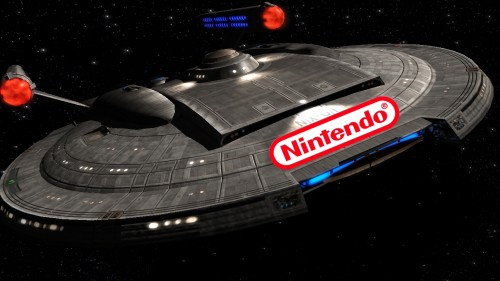
The NX-Nitendo? I doubt it, but that would be very disruptive to the market!
Iwata also demonstrated an appropriately nuanced awareness of the differences between the mobile market and the console market, accurately pointing out that console releases generally make all of their sales and profits shortly after release, while mobile games are more like services which must be maintained and sustained. This is why they are not planning on releasing many titles on mobile too quickly.
…we are not planning to release many game applications from this year (when our first smart device application will be released) to the next. The reason for this is that software for dedicated game systems is considered a “product” that tends to produce the strongest and most fresh impact on the world at the time of its release into the market but its impact can be lost gradually as time goes by. With that analogy, smart device applications have a strong aspect of “service.”
I have seen multiple people fall into the trap of trying to run in volume in the mobile space. Maybe that’ll work on some level, but it is certainly not the right approach for Nintendo now, especially since they are very concerned with maintaining a high quality when they use their IP.
IP and Licensing
The idea of licensing Nintendo IP for merchandising came up, and it was made clear that Nintendo wanted to leverage its IP for more profit in the future, but wanted to make certain that any use was in line with their expectation of quality.
we have to be wary of whether more Nintendo-licensed products will make a better situation. In the short term it may receive much attention, income such as licensing fees may increase and we might be able to grant some people’s wishes, but along with that we also have to consider correct quality control (maintaining and managing character value).
This seems to be the exact opposite of Rovio’s approach. For those who don’t know, Rovio, the creator of Angry Birds, don’t seem to have much of any restriction as to what their IP is used with, hence candies, costumes, plush toys, and more. Just pay a licensing fee so they get their piece and make whatever you want to sell with the Angry Birds on it.
I think Nintendo is more interested in maintaining the integrity of their product, considering some of the experiences they’ve had in the past, like when someone tries to write a movie script for Super Mario Brothers. That might have been worth it, though, if for no other reason than Mario is probably the only role Capt. Lou Albano could have possibly out-acted Bob Hoskins.
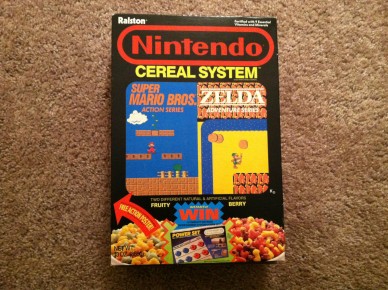
This is an item that actually existed. I ate it. It was basically Cap’n Crunch, but it had two bags inside, one with Mario shapes, one with Zelda shapes.
Other points
Value of software, digital distribution, race to the bottom for mobile games
One message that seemed to permeate a lot of Nintendo’s statements is how they view the value of their software. This was mentioned in relation to digital sales costing as much, or even more than store copies due to retailer discounts.
As for the prices of the packaged versions and download versions, we, at Nintendo, cherish the value of our software and believe that we should sell both versions at the same price because they have equal value (as software products).
While this approach can be frustrating for a consumer, it is internally consistent. The value of the software is the value of the software and it should be sold as such no matter the distribution method. From that, if the retailer wants to discount it, then that is their risk to take. I disagree with this approach to executing on this philosophy, since selling directly to the customer could be done at the same price as it is sold to the retailer and thus take out cost contributors like physical printing, distribution, and so forth, but I can still appreciate this underlying philosophy.
The idea of trying to get all old titles onto the Virtual Console service came up as well. Iwata explained that this can be difficult because while they have full access to any of their first party games, licensing for old games may have expired, meaning that no games based on other properties like movie tie ins, or any other properties have an easy path to the virtual console. On top of that, because the source code likely needs to be modified to be supported on new platforms, it is not an easy or free process to release these titles. This is another legitimate concern, and while I suspect that modern consoles should have enough horsepower to run a quality emulator, I don’t have the technical insight personally to be certain of that.
Every time I listen to Iwata present information, I find it refreshing and inspiring of optimism in the sense that I am looking forward to seeing what Nintendo will do in their own unique and uncompromising way. I may or may not be interested in consuming their products, but I respect them and wish to see what intriguing innovations they can come up with. At this time it looks like they might be working on two different interesting new things at the same time, and I for one find that very interesting.
Kynetyk is a veteran of the games industry. Behind the Line is written to help improve understanding of what goes on in the game development process and the business behind it. From “What’s taking this games so long to release”, to “why are there bugs”, to “Why is this free to play” or anything else, if there is a topic that you would like to see covered, please write in to kynetyk@enthusiacs.com



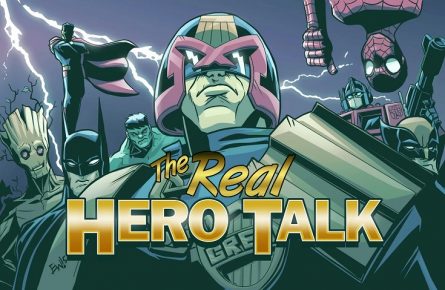




In regards to Nintendo’s mobile strategy, I am somewhat optimistic about its future. I have been playing Pokemon Shuffle on my 3DS and was actually kind of glad to see if make its way over to mobile. It is a well polished game that is fun, addicting, and monetized moderately well. It’s largest draw back is that you have a limited amount of plays before you have to wait for a timer or pay money which I think would work better on mobile than it would for the DS.
The rumors I hear about the NX, such as it not even coming close to the specs of the PS4, have me worried about the future of its home console division based on the performance and support of the Wii U.
Nice write up as always Kynetyk
Energy mechanics are a fairly complex topic, and involved in more than just being a mobile trope. I could write about it, but I’d primarily be repeating the Extra Credits crew.
https://www.youtube.com/watch?v=hQtFo_E_Ea0
Maybe I’ll get to it later anyway.
As for the NX hardware, I would take any current rumors with a grain of salt. It’s entirely likely that people are spreading information with no grounding based on Nintendo’s history. That said, while I can only speak for myself, I wouldn’t care if it has less horsepower. If fidelity of the experience was the primary mover, then the Wii wouldn’t have been a success, Mobile wouldn’t be a market that is still growing, and games that are dedicated throwbacks with pixel art and NES style gameplay wouldn’t keep showing up.
I figure it probably won’t focus on power, but some interesting innovation in the interface somewhere. I only hope that whatever it is, it’ll be introduced and have a first party demonstration, and market name for that matter, that is better than the Wii U.